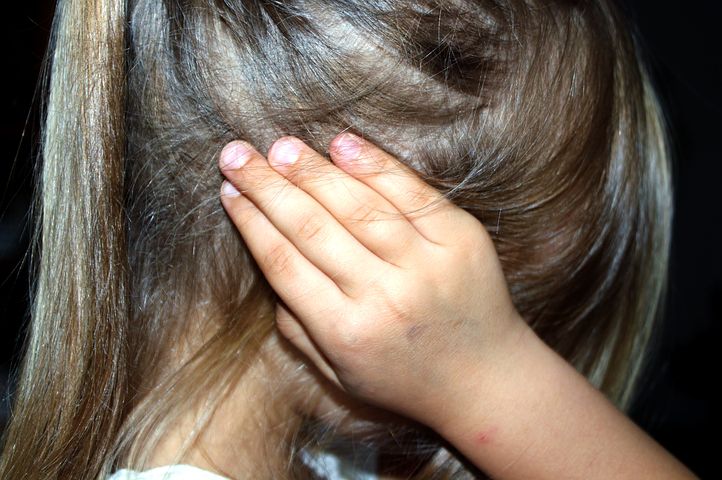Psychological Impact of Domestic Violence on Children Brain

Do you want to know How Domestic Violence Impacts a Child’s Brain?
As parents, we strive to protect our children from harm. But many times, we are unaware of the devastating effects that domestic violence can have on a child’s developing brain. Exposure to violence in the home is not just about bruises or broken bones. This environment deeply affects a child’s emotional and cognitive development. The silent crisis of domestic violence is not only a matter of the immediate physical danger but also of the lasting mental scars it leaves behind.
7 most life changing books to read in Your Lifetime

The Impact of Domestic Violence on Children’s Lives
Domestic violence not only causes physical harm but also profoundly affects a child’s brain and emotional development. Many children who witness domestic violence or are victims themselves struggle with emotional regulation. In many cases, they tend to misbehave or engage in frequent arguments with others.
Fear Spreads Among Children
The constant exposure to domestic violence instills fear and anxiety, leading to long-term emotional distress.
The Long-Term Effects of Domestic Violence
Researchers agree that witnessing domestic violence can lead to lifelong issues for children. Children who grow up in abusive households often face mental health challenges. For example, depression and anxiety. These children are more likely to repeat the cycle of abuse as adults. They may continue abusive relationships or become abusers themselves.
For example, boys who see their mothers being abused are more likely to abuse their partners in the future. On the other hand, girls raised in abusive homes are more likely to become victims of abuse themselves. Children growing up in violent environments may also develop issues related to low self-esteem, lack of trust, and difficulty forming healthy relationships.
The Psychological Damage of Domestic Violence
The effects of domestic violence extend far beyond the immediate environment. A child who witnesses abuse develops distorted views of relationships and gender roles. They may believe that men are powerful and women are weak. This affects their cognitive development, their ability to regulate emotions, and their social skills. As these children grow, they often struggle with controlling their emotions and may engage in antisocial behavior, including aggression and fighting.
Additionally, the ethical development of children exposed to domestic violence is also compromised. Seeing one parent abuse the other may lead them to normalize abusive behaviors and accept them as a part of life.
Addressing the Domestic Violence Issue: What Can Be Done?
If you are a parent living in an abusive environment, protecting your child from further trauma is crucial. The first step is to provide a safe environment. If possible, consider removing your child from the violent home environment. Open, honest communication about what is happening is essential. Let your child know that they are not responsible for the violence they witness and that no one deserves to be treated this way.
Seeking professional support, such as counseling or therapy, is vital. Cognitive Behavioral Therapy (CBT) is an effective treatment for children who have experienced trauma, as it helps them replace negative thoughts with healthier ones and teaches them to cope with stress.
Creating a supportive network for your child is also essential. Please encourage them to develop strong, trusting relationships with other adults, such as school counselors or community leaders.
Is Leaving an Abusive Relationship Better for My Children?
Many parents struggle with the decision to leave an abusive relationship, fearing the impact it might have on their children. However, staying in an abusive relationship can have even worse consequences for the child. Even if the child does not directly witness the violence, they can hear arguments, screams, and see the emotional toll of the abuse. Children are highly perceptive and can sense tension in the home.
Leaving an abusive relationship can provide a safer and healthier environment for your child. It is essential to understand that children do best in stable, loving environments, whether with one parent or two.
Breaking the Cycle: Can Children Recover?
It’s not too late. While the damage inflicted on a child’s brain from domestic violence can be significant, recovery is possible. Children are resilient, and with the proper support, they can learn to cope with their trauma and build healthier emotional responses.
However, the earlier a child receives help, the better their chances for recovery. Children who grow up in a loving, supportive environment outside of violence, especially when paired with professional intervention such as therapy, have a much better chance of becoming mentally and physically healthy adults.
How Can Parents Help Their Children Recover?
As a parent, you may feel trapped, unsure of how to protect your child while navigating your own struggles with abuse. But there are steps you can take to help your child heal:
Create a Safe Environment: Safety is the first step. Ensure that your child feels safe at home, and if necessary, consider leaving the abusive environment. Children need to know that they are secure and that they can trust their caregivers.
Open Communication: Encourage open discussions about the violence and reassure them that it is not their fault. Help them understand that the violence they witnessed or experienced is not normal and is not acceptable.
Teach Healthy Relationships: Discuss what healthy relationships look like. Explain boundaries, respect, and kindness. Equip your child with the tools to recognize abusive behavior and know how to respond.
Support and Therapy: Seek therapy or counseling for your child. Cognitive Behavioral Therapy (CBT) is particularly effective for children dealing with trauma. CBT helps them change negative thought patterns and learn coping mechanisms for stress and anxiety.
Building a Support System: Encourage your child to form healthy, supportive relationships with trusted adults, whether they are school counselors, family members, or community figures.
The Importance of Leaving an Abusive Relationship
While it may seem impossible to leave an abusive relationship, the truth is that staying can harm your child more in the long run. Children are incredibly perceptive; they can hear violence, sense tension, and feel the fear even when they aren’t directly witnessing the abuse. Staying in an abusive situation can normalize violence for your child, teaching them that it’s acceptable to hurt or be hurt.
If you’re not ready to leave, it’s crucial to create a safety plan. Reach out to domestic violence support services to understand your options, and do everything you can to protect both your safety and your child’s.
Conclusion: Don’t Wait—Your Child’s Brain Is at Risk
The effects of domestic violence on a child’s brain are not to be taken lightly. These are not just temporary scars—they are lifelong marks that can affect a child’s mental health, relationships, and overall well-being. As parents, we must recognize the signs of trauma and seek the necessary resources to help our children heal.
The effects of domestic violence on a child’s brain and emotional development are profound and far-reaching. These children are at risk of mental health problems, low self-esteem, and difficulties in their own relationships.
As a parent, you must take action immediately to protect your child and provide them with the support they need to heal. Seeking help from support services, opening lines of communication with your child, and creating a safe, loving environment are the first steps in ensuring that your child has the opportunity to grow up healthy, happy, and emotionally secure.
If you or someone you know is experiencing domestic violence, remember that help is available. Reach out to support services, talk to a professional, and take steps to protect your child’s future today. Your child’s brain and heart deserve it.

